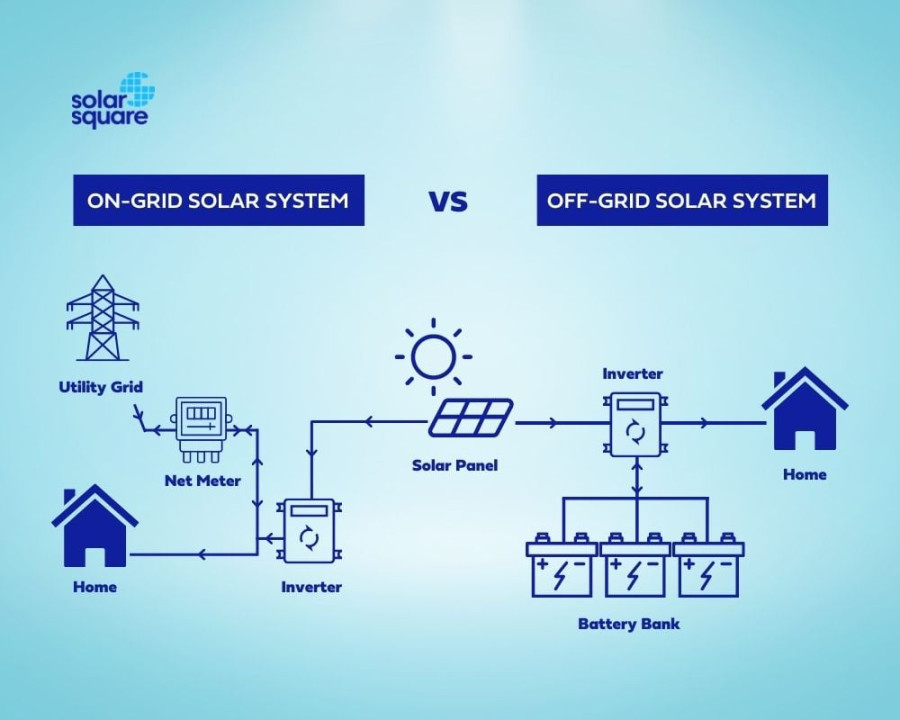Solar power has become an increasingly popular choice for homeowners and businesses alike, offering a sustainable and cost-effective way to generate electricity. But when it comes to solar power systems, there are two primary options: off-grid and on-grid. Each system has its own unique advantages and disadvantages, and understanding the differences can help you determine which one is best suited for your needs.
What is Off-Grid Solar Power?
An off-grid solar power system is entirely independent of the traditional electrical grid. It generates electricity from solar panels, stores it in batteries, and uses it to power your home or business. This system offers complete energy independence, allowing you to live or operate without relying on the utility company.

Advantages of Off-Grid Solar Power
Complete Energy Independence: You are not reliant on the grid, which can be beneficial in areas with unreliable power or during power outages.
Disadvantages of Off-Grid Solar Power
Higher Initial Cost: Off-grid systems require a substantial upfront investment due to the need for batteries and other components.
What is On-Grid Solar Power?
An on-grid solar power system is connected to the traditional electrical grid. It generates electricity from solar panels and feeds it into the grid. Any excess electricity produced is typically credited to your utility account, offsetting your energy costs.
Advantages of On-Grid Solar Power
Lower Initial Cost: On-grid systems generally have a lower upfront cost compared to off-grid systems.
Disadvantages of On-Grid Solar Power
No Energy Independence: You are still reliant on the grid for power when solar production is insufficient.
Factors to Consider When Choosing Between Off-Grid and On-Grid Solar Power
Several factors should be considered when deciding between off-grid and on-grid solar power:
Location and Grid Reliability: If you live in a remote area with unreliable grid service, off-grid might be the better option.
Conclusion
Both off-grid and on-grid solar power systems offer advantages and disadvantages. The best choice for you depends on your specific needs, budget, and location. By carefully considering the factors discussed above, you can make an informed decision about which system is right for your home or business.
Frequently Asked Questions
1. Can I combine off-grid and on-grid solar power?
Yes, it’s possible to create a hybrid system that combines the benefits of both. This can be a good option for those who want energy independence but also want to benefit from net metering.
2. How long do solar panels last?
Solar panels typically have a lifespan of 25 to 30 years, but they can continue to produce electricity beyond that.
3. Do solar panels work on cloudy days?
While solar panels produce less electricity on cloudy days compared to sunny days, they can still generate power.
4. How much does it cost to install a solar power system?
The cost of a solar power system varies depending on factors such as the size of the system, location, and incentives. It’s best to get quotes from multiple installers.
5. Are there government incentives for solar power?
Many governments offer incentives like tax credits, rebates, and feed-in tariffs to encourage the adoption of solar power.